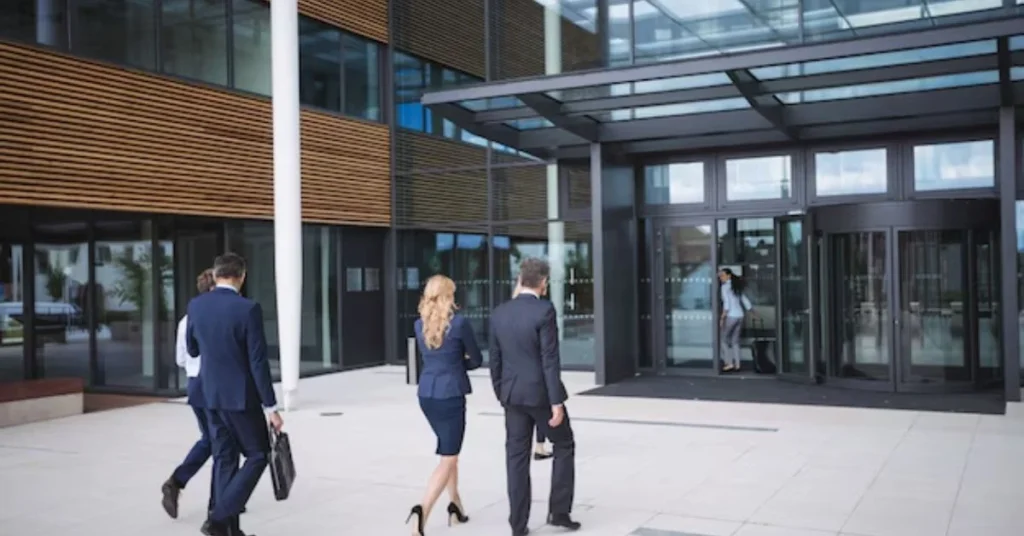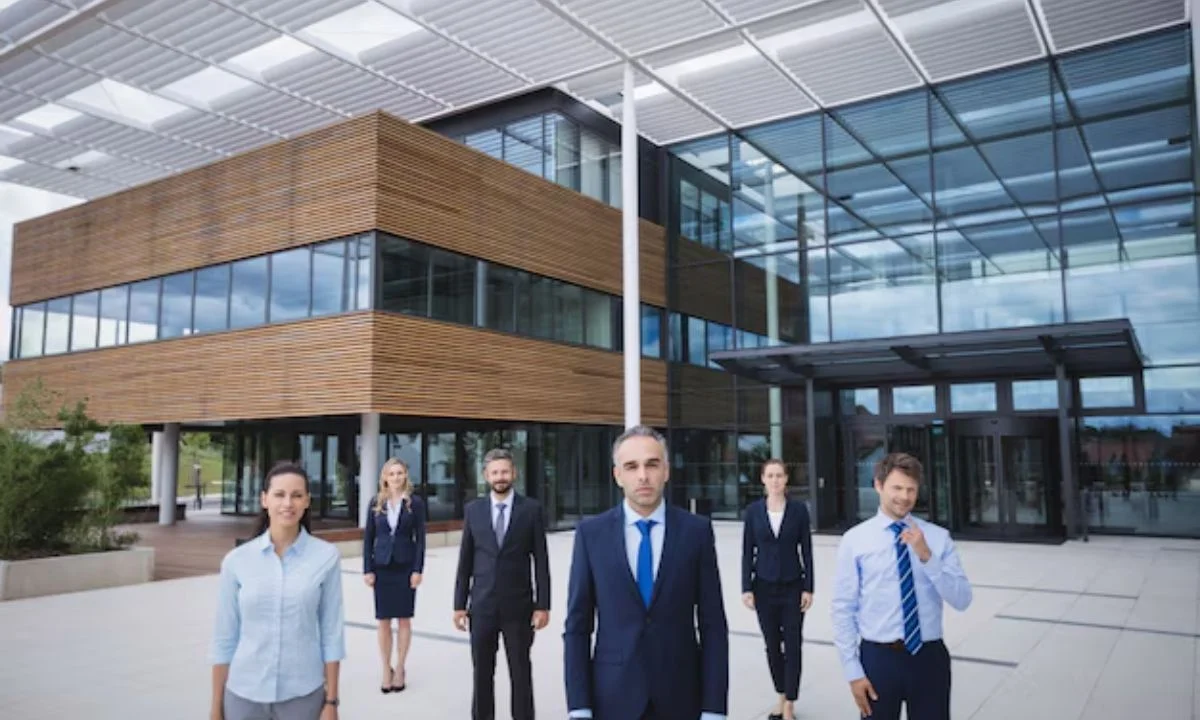If you’ve ever wondered, what type of category of company is an awning company, you’re not alone. Awning companies hold a unique place in the business world by combining manufacturing, design, and service offerings. These businesses specialize in creating and installing awnings for homes, businesses, and public spaces. But what industry classification best fits an awning company? This article will break down the different aspects of awning companies, their roles in various industries, and their significance in the modern economy.
Let’s dive deeper into the details to understand the full scope of these versatile businesses.
What Does an Awning Company Do?
Core Services Offered by Awning Companies
An awning company provides essential shade, weather protection, and aesthetic improvements for various types of properties. Their services typically include:
- Designing Custom Awnings: Working with clients to create unique awnings tailored to their needs.
- Manufacturing: Building awnings from durable materials like fabric, aluminum, or polycarbonate.
- Installation: Ensuring proper placement and secure setup of awnings.
Some companies also offer repair and maintenance services, helping clients extend the life of their awnings.
For those interested in learning more about the history, types, and uses of awnings, you can explore this comprehensive guide on awnings.
Residential vs. Commercial Focus
Awning companies serve both residential and commercial markets. For homeowners, these businesses offer solutions like patio covers, window awnings, and retractable systems. For businesses, they design functional and stylish awnings that enhance storefront appeal or provide outdoor seating protection.
What Type of Category of Company is an Awning Company?
Classifying Awning Companies
To answer what type of category of company is an awning company, it’s essential to consider their broad scope of services. Awning companies generally fall into multiple categories, including:
- Manufacturing: They fabricate awnings, often tailoring designs to specific customer requirements.
- Service Providers: Beyond production, they assist with installation, maintenance, and repair.
- Retailers: Many awning companies sell pre-made products or accessories directly to consumers.
Industry Connections
Awning companies are linked to several industries, such as:
- Construction: Offering shade structures for new builds and renovations.
- Home Improvement: Helping homeowners enhance their property’s functionality and curb appeal.
- Signage and Branding: Designing awnings that double as advertising spaces for businesses.
These classifications make awning companies versatile players in the market.

Why Categorization is Important
Understanding what type of category of company is an awning company benefits businesses, regulators, and customers alike.
- For Customers: Clear categorization helps clients find specialized services.
- For Businesses: It allows companies to position themselves more effectively in the market.
- For Regulators: Proper classification ensures compliance with industry standards.
Accurate categorization can also influence a company’s marketing strategy and operational focus.
When considering the type of category an awning company falls under, it’s also worth exploring how certifications, like ASE certification, can impact small businesses in related fields. Learn more about Does ASE Certification Matter for a Small Business? to understand the importance of professional credentials and their role in building trust with customers.
Types of Awning Companies
Residential Awning Companies
These companies primarily serve homeowners. They design and install awnings that enhance outdoor spaces and improve energy efficiency. Common offerings include:
- Patio Covers: Providing shaded outdoor living areas.
- Window Awnings: Reducing indoor heat while adding aesthetic appeal.
- Retractable Systems: Offering flexible shade solutions.
Commercial Awning Companies
Focused on businesses, these companies create awnings that:
- Highlight storefronts with unique designs.
- Protect outdoor dining or retail spaces.
- Serve as branded signage for advertising.
Commercial awning companies often handle larger-scale projects and prioritize functionality and durability.
Full-Service Awning Companies
Some companies serve both residential and commercial clients, offering a wide range of products and services. These businesses often specialize in custom solutions and advanced technologies like motorized or smart awning systems.
Key Features of Awning Companies
Customization and Design
One of the hallmarks of an awning company is its ability to deliver custom solutions. From fabric choice to structural design, these businesses ensure that every awning meets the specific needs of their clients.
Durable Materials and Manufacturing
High-quality materials are crucial for producing durable awnings. Companies often use:
- Acrylic or Canvas Fabric: For flexibility and weather resistance.
- Aluminum Frames: Offering lightweight yet sturdy support.
- Polycarbonate Sheets: Providing modern, transparent designs.
Advanced manufacturing techniques further ensure the longevity of the products.

Professional Installation
Proper installation is vital for an awning’s performance and safety. Awning companies employ skilled teams to install awnings securely and efficiently.
Economic Impact of Awning Companies
Boosting Local Economies
Awning companies contribute to local economies by:
- Creating Jobs: Hiring designers, fabricators, and installers.
- Supporting Suppliers: Partnering with local material providers.
- Enhancing Property Values: Improving homes and businesses in the community.
Energy Efficiency Benefits
Awnings can significantly reduce energy costs by lowering indoor temperatures. This makes awning companies an integral part of the push for energy-efficient building practices.
Challenges Faced by Awning Companies
Material and Production Costs
Fluctuations in material costs, like fabric and aluminum, can impact profitability. Companies often address this by sourcing alternative materials or improving efficiency.
Competition
With numerous players in the market, companies must differentiate themselves through superior quality, innovative designs, and exceptional customer service.
Technological Advances
The growing demand for smart and motorized awnings requires businesses to invest in new technology and training for their teams.
How to Choose the Right Awning Company
Experience and Expertise
A company with years of experience is more likely to deliver high-quality products and services.
Customization Options
Look for businesses that offer personalized designs and a variety of materials to meet your specific needs.
Customer Reviews
Online reviews and testimonials provide valuable insight into a company’s reliability and quality of work.
Conclusion: What Type of Category of Company is an Awning Company?
To summarize, what type of category of company is an awning company depends on its range of services and market focus. These businesses typically fall into manufacturing, service, and retail categories, catering to both residential and commercial clients. Awning companies play a vital role in improving property functionality, enhancing aesthetics, and promoting energy efficiency.
Whether you’re a homeowner seeking to upgrade your outdoor space or a business looking to enhance your storefront, an awning company offers valuable solutions tailored to your needs. Choosing the right company ensures you receive high-quality, long-lasting products backed by professional expertise.

Frequently Asked Questions (FAQs)
What type of category of company is an awning company?
An awning company typically falls under the manufacturing, service, and retail categories, depending on its offerings.
Do awning companies only serve homeowners?
No, many awning companies also cater to commercial clients, providing tailored solutions for businesses.
Are awning companies part of the construction industry?
Yes, they are often associated with construction and home improvement sectors.
What materials do awning companies use?
Common materials include acrylic fabric, aluminum frames, and polycarbonate sheets for durability and aesthetic appeal.
Can an awning company help reduce energy costs?
Yes, by installing energy-efficient awnings, businesses and homeowners can lower cooling costs.











